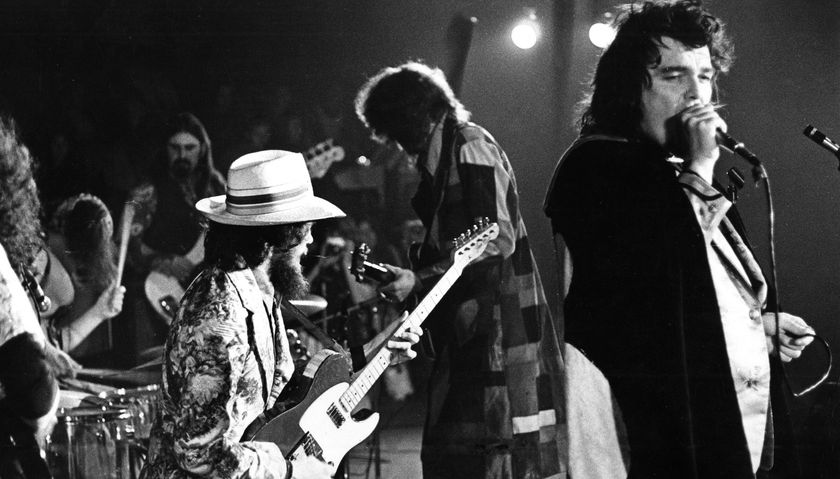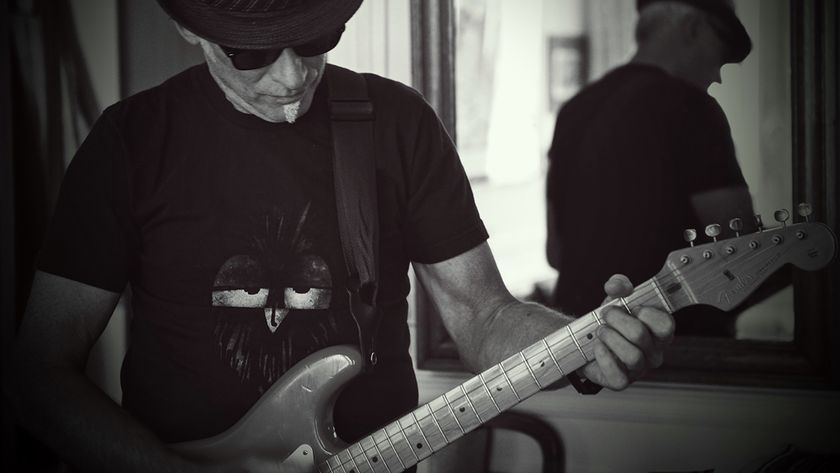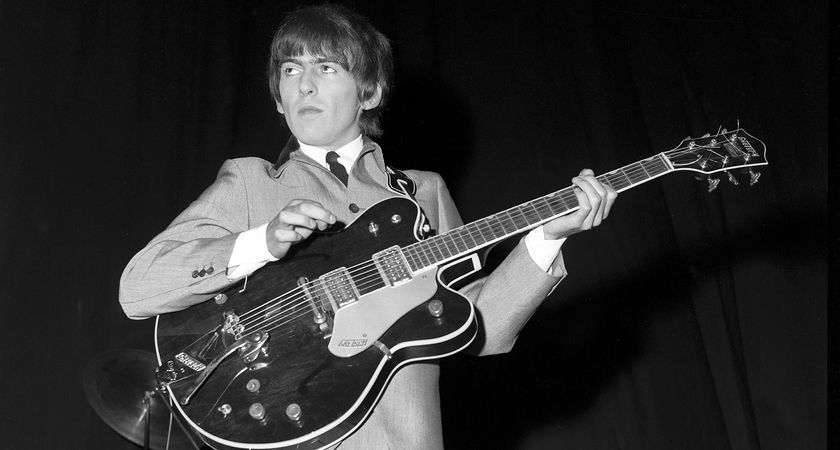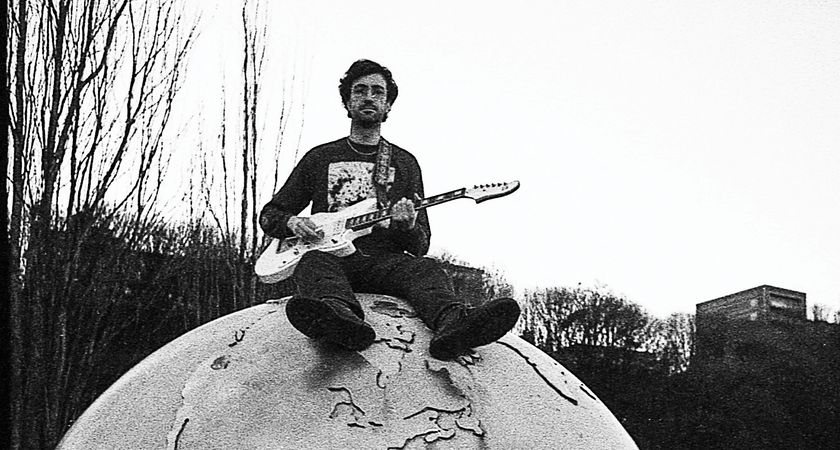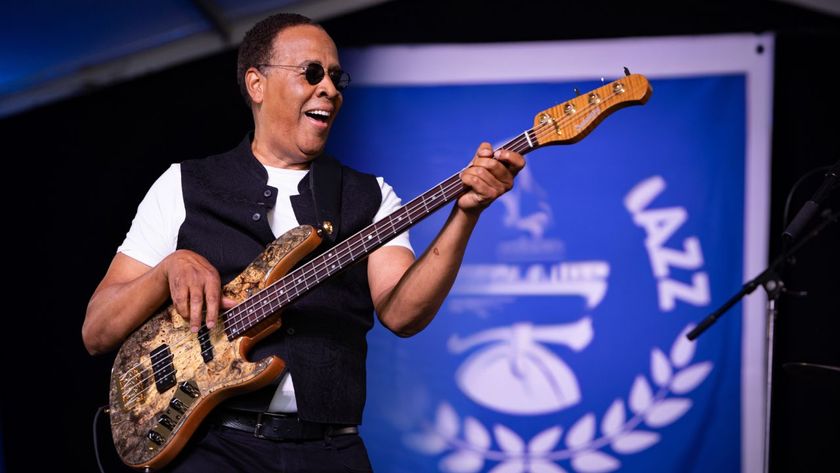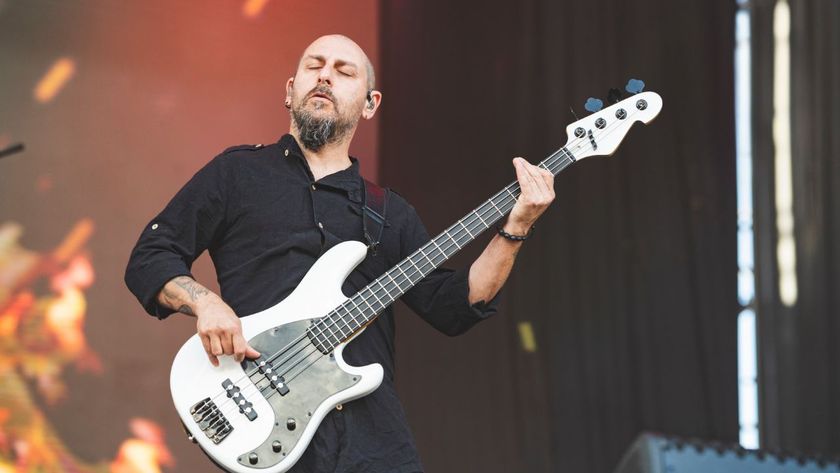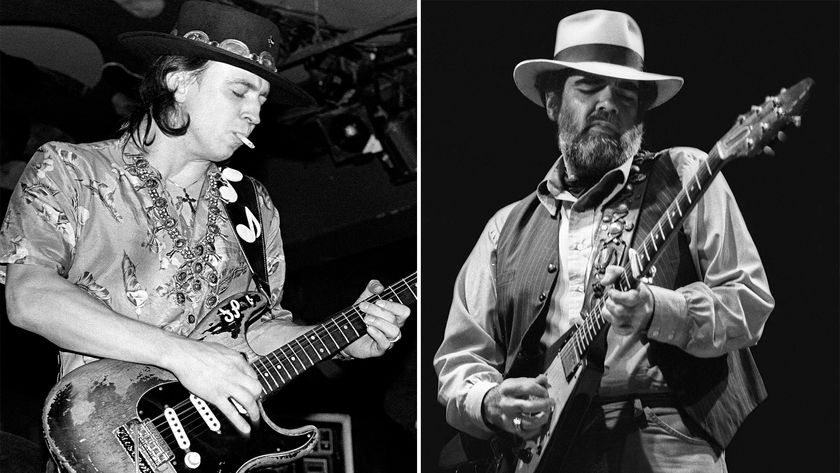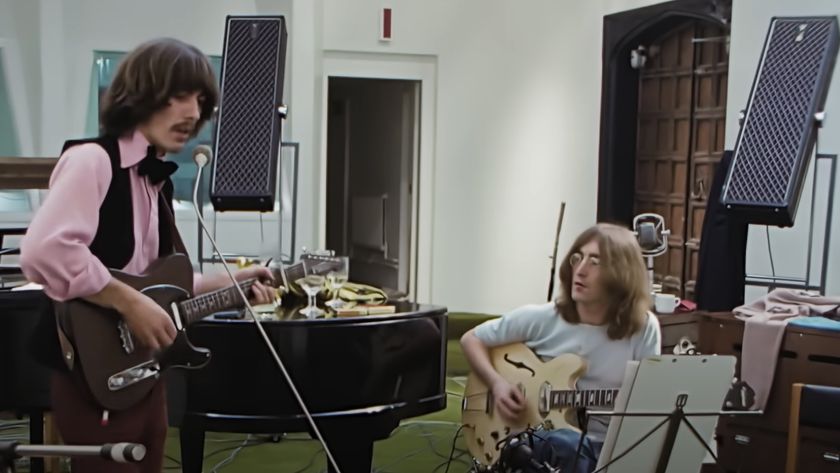“Paul Simon told me what key the song was in, turned off the vocal track and counted me in”: He’s been sampled by Kanye West, and played with Paul Simon, The Black Keys and Tame Impala – yet Delicate Steve is still the best-kept secret in indie guitar
Steve Marion tells us why his career highlights include a severely negative Pitchfork review, making an album he hated and Kanye sampling him… then not releasing the track
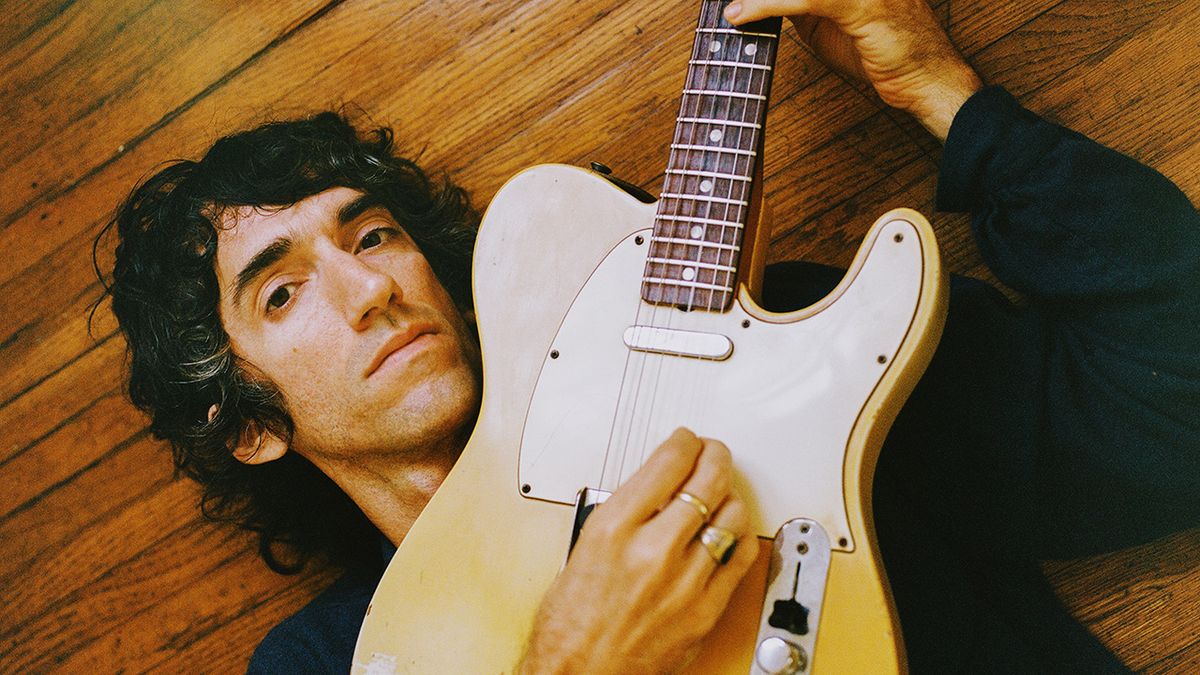
Saying a guitarist has their own voice on the instrument is the highest form of praise. Delicate Steve – sideman extraordinaire to the likes of Tame Impala, The Black Keys and Yeasayer – has long been admired for the voice he’s developed, but remains perhaps the best-kept secret in indie guitar.
He’s blazed a haphazard, unpredictable and twisting trail through a swathe of pop culture, being recruited by Paul Simon to play haunting slide on The Werewolf, collaborating with Miley Cyrus and Shawn Everett on Used to be Young, and being sampled multiple times by Kanye West.
He can probably browse the racks of any guitar store and be soundly ignored – but those who know know. His solo albums are where the real action is: a place for this slide-wielding, uniquely vocal player to embrace whichever mad variant of himself takes his fancy. They’re consciously corny on the surface, but they reveal hidden depths.
His latest release Delicate Steve Sings features no actual vocals from its creator, but instead sees him use his guitar to reinterpret the singing talents of a slew of inspirational characters: Frank Sinatra’s take on Yesterday, Donnie & Joe Emerson’s achingly gorgeous Baby and Otis Redding’s These Arms of Mine, among others.
“It was largely inspired by somebody telling me what my guitar playing is all about to them – the phrasing,” says Steve. “That kind of stuck with me.
“At the same time, I like to play with trite themes and concepts for albums. I have a Live in Las Vegas album. I have an album called The Christmas Album. I like being able to insert myself into this part of popular culture in a subversive way.”
That he does. Searching for truth by sifting the saccharine through a six-string…
Get The Pick Newsletter
All the latest guitar news, interviews, lessons, reviews, deals and more, direct to your inbox!
What led you to pick the songs and interpretations of vocalists on Sings?
“Well, live, Delicate Steve has covered like 20 songs at this point. A sort of unintentional theme was covers of covers, like Yesterday – it’s literally the most covered song ever. It’s super-trite and overdone.
“It’s about how many boxes I can check, and that’s like check one and check two. Then I was really into Frank Sinatra at the time, and checking out his My Way album, and he covers Yesterday. Check three.

“Then Otis Redding; if you really want to trace this whole concept of me playing like a singer, it has to do with Otis Redding – the notes he’s singing over that circular chord progression that keeps vamping influenced my sense of phrasing more than anything else.”
You use that word ‘trite’ a lot. What is it about that concept that you find inspiring? It’s literally the last thing most musicians would look for.
“It’s been there since the inception of Delicate Steve. When I made my first record [2011’s Wondervisions], I was finishing songs for the first time in my life. The only reason I got over the hump of completing them was because I set out to make them cheesy – to do stuff I didn’t like.
“I took my Whammy pedal off the shelf; I hadn’t played it since I got it as a teenager. I stopped using reverb, because how can you make a cool guitar sound without some reverb?
“I made all these conscious decisions to see if I could play around in that world. And because it was so different from what I thought was ‘good,’ I was able to actually finish the challenge – which I’d never been able to do before in my life.”
So you started intentionally making music you didn’t like?
“I thought, ‘How wrong can you be about something?’ When I finished that first album, I really didn’t like it. It had nothing to do with the corniness thing. I was just embarrassed about hearing my own music and having my name on it.
“But then, of course, the song I liked the least started to grow on me, and all this stuff happened that would have never happened had I not finished anything. I realized it’s the act of finishing something that is the most important thing.
It gave me such peace that there was a negative review, because that’s like my favorite thing
“So I don’t do anything in an ironic way – but I like the idea of being able to take something that is trite and play around with that. You don’t need to be ‘heart on your sleeve’ in order to be taken seriously. A lot of times that turns people off about guitar playing. Think about soloing: if I’m trying so hard like that, 99 times out of 100 it doesn’t track in a room. So let me play around.”
Would you have regarded yourself as a perfectionist in the past?
“Yeah. I think most artists are obsessives and, while we like to think we’re in a good place with music – where it’s democratized, and anybody could make something in their bedroom that ends up on the radio – the idea that some older producer is going to tell you what to do? Hey, I don’t mind that!
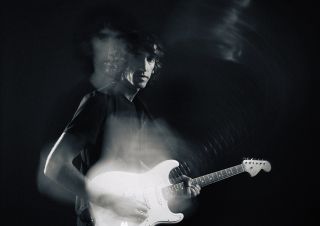
“Everyone is so obsessive and self-absorbed as an artist that any tool that allows you to get out of your own way is really helpful. These words: ‘right’ or ‘boring.’ ‘Sincere’ versus ‘ironic.’ This ‘cool’ thing. I don’t care about that at all; I never have. I've always wanted to fit in with musicians that I respect, but I never wanted to really be cool.”
With this latest record, how successful were you in your aims?
“I never really listened to my own music. But once you start getting other musicians on your records, you enjoy the records more, because you’re hearing people that you like play music, and you’re a part of it.
“So I hadn’t listened to any of my records as much as I listened to this one, and every time I put it on I was very happy with it. Then I got this negative Pitchfork review – which to me was hilarious. I stopped and thought, ‘Did I follow my heart? Did I go through the decision-making process completely in a vacuum? Did I avoid trying to fit into any garbage that’s out there?’ The answer was ‘Yes.’
“It gave me such peace that there was a negative review, because that’s like my favorite thing! Here’s a pillar of musical integrity, telling you something is bad. My favorite experience as a listener is when you put it on and go, ‘Wait a second. I really like this…’ It sets it up for people to have their own unique experience with it.
“I don't really go on Pitchfork anymore, but when I do I'll click on what I think is going to be the most salacious read. Otherwise it’s all 7.3/10 – which is good, but who cares about that? What is that even trying to say?”
Outside of your solo material you’ve had a prolific career as a sideman for the likes of Yeasayer, Amen Dunes, Tame Impala and The Black Keys. Would you describe yourself a session player?
“I'm kind of a ‘yes’ man at this point! It’s a blessing and a curse in that I don’t really get asked to do sessions, or scoring. But when I do, it's like a Miley Cyrus track, or a track with Paul Simon. But if somebody asks me and I can get into it, I’m doing it.”
After two sessions I realized, ‘I think Miley likes this. I think it’s actually going to happen’
Was your playing on The Werewolf, from Paul Simon’s 2016 record Stranger to Stranger, pretty much a first take?
“It was a first take. And I learned so much. He just told me what key the song was in, turned off the vocal track and counted me in to where the verse was. There wasn’t really anything going on melodically.
“About a minute into the song, I start weaving in and out of his vocals. And then I realized, ‘Wait a second, he muted the vocal… Oh, he’s singing into my ear right now. This is interesting!’ And I just kept playing.

“He said, ‘Okay, that was pretty good. Do you want to try another?’ I had just showed up to his house. It’s 10 in the morning and I’m ready to be there all day, so I’m like, ‘Yeah!’ And after the track ends, he more confidently says, ‘Okay, that one wasn’t as good.’
“We listened to the first take, all these little bits that I did. He made subtle automation adjustments, like turning turn a slide riff down two decibels or up two decibels, or muting parts. We spent hours doing that.
“I realized what his genius is in that moment. A lot of people are good at being spontaneous or good at editing. You’re maybe 50/50 but you’re never 100 percent genius-level at both, because they're entirely different parts of your brain. So to be able to have an exacting editing quality and then also be able to be childlike – he had both.”
You also played on Miley Cyrus’ Used to be Young. How did that happen?
“I was brought in through Shawn Everett, the producer – I’ve been a superfan since he did Sound & Color by Alabama Shakes. Again, I’m so out of the loop. I didn’t know Miley Cyrus had just put out her most successful song ever [Flowers]. I hadn’t heard that song.
“She wasn’t there initially. She gave Shawn this tune to rework that she wasn’t happy with, and he brought me in to try some stuff. Working with him was so fun.
“He would do things like pull a random acoustic guitar video on YouTube, pitch it down, pull this other thing in and play them at the same time over the track, and be like, ‘What do you hear?’ He left it up to me to pull out a single-note melody from these weird sounds.
I got a text saying, ‘I’m working on the Kanye album. Your track’s on it, and it’s out on Saturday’
“After two sessions I started to realize, ‘Oh, I think she likes this. I think it’s actually going to happen. Let me Google Miley Cyrus...’ Then the final day, we all worked on it together. My one experience with her was super-positive. I was definitely repping her for a while after that.”
Your other brush with megastardom was in 2018 when Kanye West sampled your track Wally Wilder on the ultimately unreleased Last Name.
“Yeah, I was on tour for another band, at a soundcheck, and I started to get text messages from a friend saying, ‘Hey, I’m working on the new Kanye album. Your track’s on it, and it’s coming out on Saturday – congrats!’ I look up and have to play through a song, and I’m like, ‘What’s going on?’

“Then the lawyers got in touch and I got the songwriting split figured out, all before I even heard the tune. Somebody had grabbed a video and I was like, ‘Holy shit, that's my song!’ So I was the last person to hear it. But the album [Yandhi] never came out; and by the time he put out an album, it was like a totally different record.
“But I’d heard the song and I was blown away. I don’t even know what to say about it, but it still inspires me – and it gave me so much confidence. I wish every artist could have something like that happen to them.
“The thing didn’t come out and that’s fine. But it’s just like, you really don’t know who is listening to what you’re doing – right now, or in five years, 10 years... It really allowed me to feel like I can do my thing.”
- Delicate Steve Sings Is out now via Anti-Records.

Matt is Features Editor for GuitarWorld.com. Before that he spent 10 years as a freelance music journalist, interviewing artists for the likes of Total Guitar, Guitarist, Guitar World, MusicRadar, NME.com, DJ Mag and Electronic Sound. In 2020, he launched CreativeMoney.co.uk, which aims to share the ideas that make creative lifestyles more sustainable. He plays guitar, but should not be allowed near your delay pedals.

“I practice guitar ferociously”: Creedence Clearwater Revival's John Fogerty deploys Eddie Van Halen-style two-hand tapping on an Ibanez RG in unlikely guitar practice video
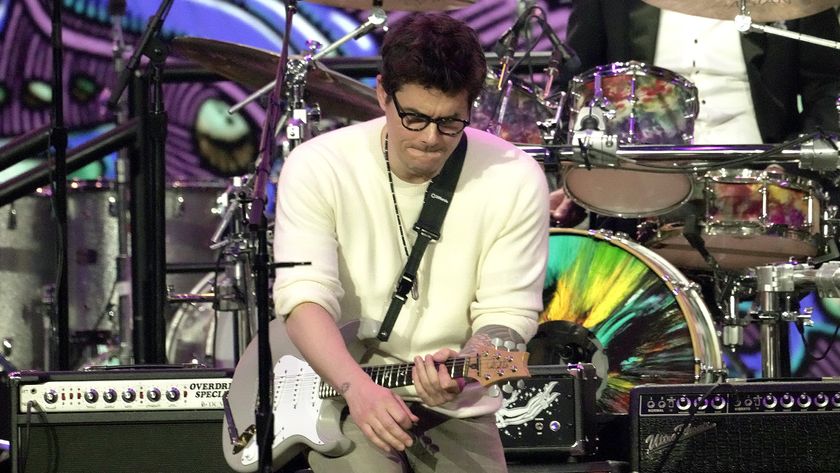
“This is going to merge into a very hot topic among guitar players”: Why John Mayer decided against ditching his tube amps for modelers for Dead & Company’s Sphere residency – despite the venue’s shortcomings




